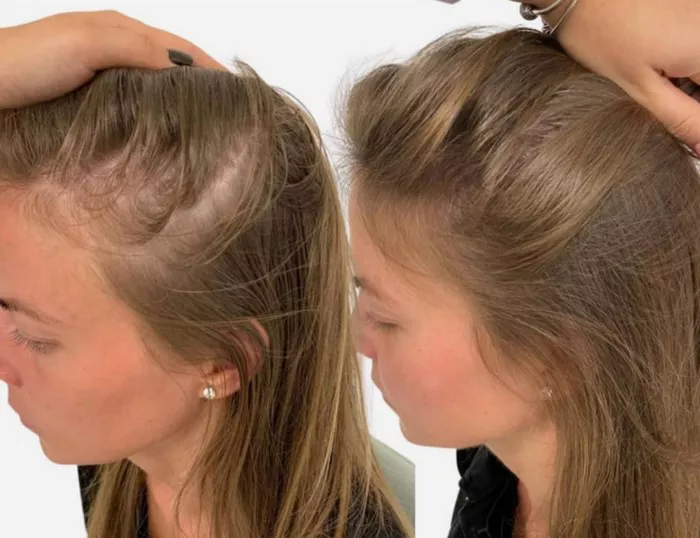Hair transplantation is a popular solution for those seeking to restore hair growth and address baldness. However, post-operative care is crucial for the success of the procedure and the comfort of the patient. One common issue faced by many patients is an itchy scalp. This article will provide seven professional tips to help stop an itchy scalp after hair transplantation.
Understanding Itchy Scalp After Hair Transplantation
Before delving into the tips, it is important to understand why an itchy scalp occurs after hair transplantation. The procedure involves creating tiny incisions in the scalp to insert hair follicles, which can lead to irritation and itching as the scalp heals. Additionally, the formation of scabs and the regeneration of nerve endings can contribute to itchiness.
1. Keep the Scalp Clean
Post-Operative Cleaning
One of the most important steps in preventing an itchy scalp is to keep the area clean. After hair transplantation, your surgeon will provide specific instructions on how to clean your scalp. Follow these instructions meticulously.
Gentle Washing
Typically, you can start washing your scalp gently a few days after the procedure. Use a mild, non-medicated shampoo recommended by your surgeon. Avoid scrubbing or using your nails to prevent irritation.
Regular Maintenance
Maintain a regular cleaning routine as advised. This will help prevent the buildup of dead skin cells, which can contribute to itching.
See Also: 7 Things That Will Happen Ten Years After Hair Transplantation
2. Avoid Scratching
Minimize Touching
It is natural to want to scratch an itchy scalp, but this can be detrimental to the healing process. Scratching can dislodge the newly transplanted hair follicles and cause infection.
Protective Measures
Consider wearing a loose-fitting hat or covering to protect your scalp from involuntary scratching, especially while sleeping.
Alternatives to Scratching
If the itchiness becomes unbearable, gently tap or pat the area instead of scratching. This can provide some relief without causing damage.
3. Use Medicated Solutions
Topical Treatments
Your surgeon may recommend a topical corticosteroid or other medicated solutions to help reduce itching and inflammation. These should be used as directed.
Antihistamines
Oral antihistamines can also be effective in reducing itchiness. Consult your doctor before taking any medication to ensure it is safe and appropriate for your condition.
Natural Remedies
In some cases, natural remedies such as aloe vera gel or chamomile tea rinses may provide soothing relief. Always check with your surgeon before using any alternative treatments.
4. Maintain a Healthy Diet
Nutritional Support
A healthy diet plays a vital role in the healing process. Ensure you consume a balanced diet rich in vitamins and minerals that support skin health, such as vitamins A, C, E, and zinc.
Hydration
Staying well-hydrated is essential. Drink plenty of water to keep your skin and scalp hydrated, which can help reduce itchiness.
Avoid Irritants
Some foods and drinks, such as spicy foods and alcohol, can increase inflammation and irritation. It may be beneficial to avoid these while your scalp is healing.
5. Follow Post-Operative Instructions
Adherence to Guidelines
Your surgeon will provide a detailed set of post-operative instructions. Adherence to these guidelines is crucial for a smooth recovery and to minimize complications like itching.
Activity Restrictions
Avoid strenuous activities that can cause sweating and irritation to the scalp. Follow your surgeon’s advice on when to resume normal activities.
Proper Medication Usage
If prescribed antibiotics or anti-inflammatory medications, take them as directed to prevent infection and reduce inflammation.
6. Utilize Scalp Moisturizers
Hydrating Products
Keeping your scalp moisturized can help alleviate itchiness. Use a moisturizer recommended by your surgeon. Avoid products with alcohol or other harsh ingredients that can dry out the scalp.
Application Techniques
Apply the moisturizer gently to avoid disturbing the hair grafts. Typically, you can start moisturizing a few days after the procedure, but always follow your surgeon’s timeline.
Frequency
Regular application of moisturizer, as advised, will keep the scalp hydrated and reduce the likelihood of itchiness caused by dryness.
7. Manage Stress and Anxiety
Stress and Healing
Stress can negatively impact the healing process and exacerbate itchiness. Managing stress is crucial for a successful recovery.
Relaxation Techniques
Incorporate relaxation techniques such as deep breathing, meditation, or gentle yoga into your routine to help manage stress levels.
Professional Support
If anxiety or stress becomes overwhelming, consider seeking support from a mental health professional. Managing your mental health is as important as physical care during recovery.
Additional Tips for Itchy Scalp Management
Avoid Heat Exposure
Avoid exposing your scalp to direct sunlight or excessive heat. Use a loose-fitting hat or a scarf to protect your scalp when outdoors.
Gentle Hair Care
Once you resume washing your hair, use a gentle touch. Avoid using hair dryers, curling irons, or other styling tools that can cause irritation.
Regular Follow-Up
Attend all scheduled follow-up appointments with your surgeon. Regular check-ups will help monitor your healing process and address any issues promptly.
Conclusion
An itchy scalp after hair transplantation can be uncomfortable, but it is manageable with the right care and precautions. Following these seven tips can help you minimize itchiness and ensure a smooth recovery process. Always consult with your surgeon if you experience severe or persistent itching, as it may indicate an underlying issue that needs professional attention. Remember, proper post-operative care is essential for the success of your hair transplant and the health of your scalp.
Related topics:

